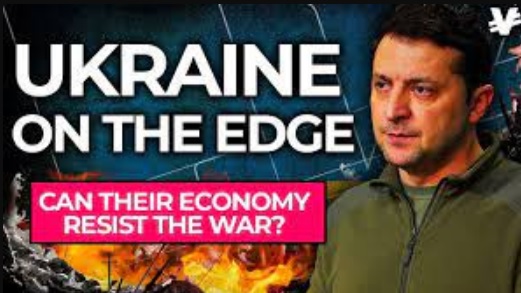
For the moment, the economy is holding on — albeit with major Western support. But the risk, officials and analysts say, is that the financial aid will not be enough going forward. The only major investment plan on the horizon — the recently signed deal with the United States to develop Ukraine’s mineral wealth — is still years from development, ‘The Washington Post’ notes.
With Trump’s talk of a quick end to the war, businesspeople inside and outside the country had been poised to take advantage of the hoped-for peace dividend and reconstruction. Optimism in some quarters soared, with the price for Ukraine’s government bonds peaking in mid-February.
Those hopes have crashed as Trump’s attention has moved on to other conflicts — though he did promise Wednesday to call Putin.
Among business leaders and Ukrainian officials, there has been a sharp reassessment.
“The ceasefire was at the heart of all economic forecasts, that it could come somewhere in mid-2025,” said a senior official in the presidential office who spoke on the condition of anonymity because he was not authorized to speak to reporters.
Now, he said, a “positive impact on the economy” this year “is no longer being considered,” though there are still hopes for 2026. Ukrainian officials now say the focus is on what needs to be done to stay afloat.
Ukraine’s Western allies currently cover the country’s nonmilitary expenditures — such as pensions, health care and education — by garnishing interest payments from Russian assets abroad that have been frozen.
Next year, however, that support will cover only half of the $40 billion that Zelensky says the country needs, Ukrainian officials say.
Finance Minister Serhiy Marchenko told parliament this month that the country must be prepared for the war to continue to the end of 2026. Even if that is not the case, the government may have to cut billions from the state budget.
But there is “very little that can be cut,” said Vitaliy Vavryshchuk, former head of the financial stability department at Ukraine’s National Bank. “We cannot cut… education or health care,” he said. “In 2025, the government did not increase minimum wages. The incomes of public-sector employees increased only marginally. There is very little or no room to cut expenditures in those segments.”
Many have cut costs to the bone and reinvested their dividends into just maintaining their businesses in Ukraine.
International organizations like the European Bank for Reconstruction and Development are providing funds for projects in Ukraine, but private investors are staying away, spooked by the security situation.
As Russia presses forward in the east, security and the war’s continuation is foremost in the minds of those working in Ukraine as well.
“The pace of retreat has huge impact on business confidence and readiness to do investments, so everybody obviously watches the daily reports about how many square kilometers we have lost,” the business man said. “Missiles and drone attacks damage your business, demotivate the population, force people to emigrate and impact services like electricity.”
read more in our Telegram-channel https://t.me/The_International_Affairs

 11:25 30.06.2025 •
11:25 30.06.2025 •






















